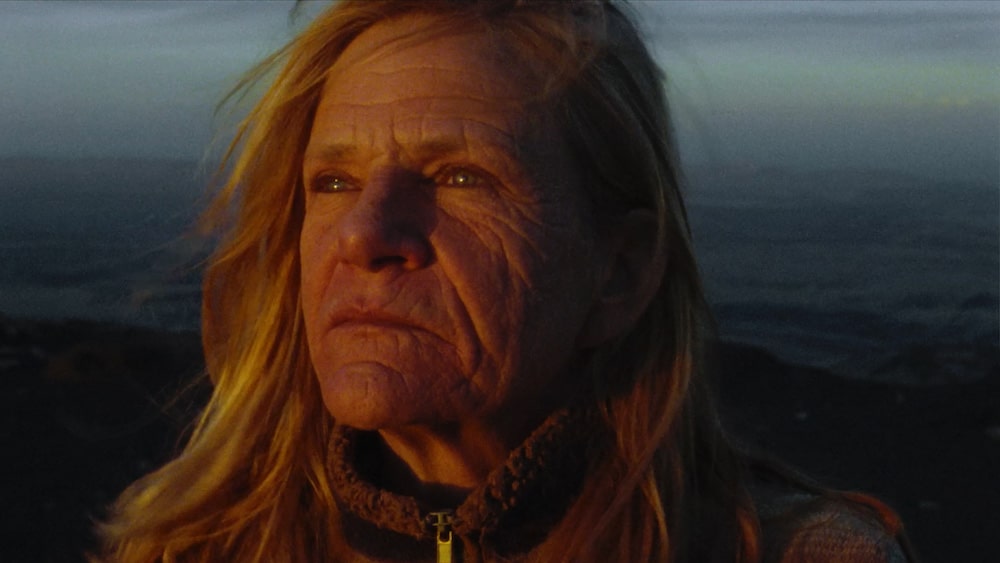Read also:
How to Watch FX Live Without CableHow To Watch AMC Without CableHow to Watch ABC Without CableHow to Watch Paramount Network Without CableMax Walker-Silverman’s debut A Love Song gives two veteran character actors a tender romance rooted in loneliness & nostalgia
(This review is part of our coverage of the 2022 Sundance Festival)
Dale Dickey has a face you can’t look away from. She’s sixty, but not Hollywood sixty, not with her face stretched so tight it looks in danger of splitting off her skull. She’s real world sixty – her face is heavily lined, perhaps from too much time spent in the sun, but her eyes are still bright and sparkling. It’s a face that’s familiar, roughly drawn but very human, and the longer you look at her, the more beautiful she becomes, mostly because of that realness.
Dickey has had a long career of character roles, often specializing in hard-edged women living on the outer fringes of society, notably in Winter’s Bone and Hell or High Water. In A Love Song, Max Walker-Silverman’s feature debut, she finally gets a leading role, still on the outer fringes, but with a soft side and hopefulness that her other characters mostly lack. It’s a lovely, subtly moving performance in a lovely, subtly moving film.
Faye (Dickey) is a widow camping near a river out in the middle of the Colorado nowhere, so far out that the mail is delivered by horse. Though she occasionally has coffee or makes small talk with distant neighbors, Faye is alone much of the time, passing the time by learning how to identify birds by their song, stargazing, catching and eating crawfish, and listening to old songs on a radio that looks like it was purchased when Reagan was in office. There’s a sort of numbing sameness to her days, but she seems content in that sameness. It’s reliable, predictable, and allows her to be lost in her own thoughts and memories.
As it turns out, Faye isn’t passing time so much as she is waiting. She’s sent a letter to her teenage sweetheart, Lito (Wes Studi), inviting him to visit her at the campsite, and though Lito has yet to respond, something keeps her waiting there for him, convinced that he’ll show up one of these days. But she’s not some weak-willed sap putting her life on hold for a man when she doesn’t even know if wants her or not. Faye is simply at a point in her life where she’s ready to take a chance again, to see if a fire that once burned bright can be rekindled. It might be the bravest thing she’s ever done.

Just when Faye is on the edge of leaving and forgetting the whole thing, Lito does show up, accompanied by his friendly dog and with a bouquet of wildflowers in hand. Faye’s shy smile and the girlish, anxious way she fusses with her hair at the sight of him tells you everything you need to know about this moment. It’s why they tell you to keep hoping, to never be afraid to take chances.
At under ninety minutes, A Love Song is as stripped down a movie as you’re ever likely to see. There’s no action, no conflict, and no real conclusion. If there’s any sort of suspense, it’s in whether or not Lito will show up, and then whether or not he will stay. The chemistry between Faye and Lito, both of whom are sweetly out of practice in courtship, is low-key, a gentle simmer as opposed to a raging boil. It lacks the “relationships are a game to be won or lost” cynicism of other romantic movies, but at the same it doesn’t exactly pop off the screen with excitement.
What it is, however, is a film full of small, sweet moments that feel more real, and more empathetic than most similar mainstream fare. Faye is flustered when Lito asks to take her picture, turning away and telling him “Think of me when I was young and pretty.” “I think you’re pretty,” Lito says, and for a second he looks and sounds like the teenage boy Faye fell for the first time. Rather than make assumptions about where he’ll sleep, Lito sets up a tent for himself outside Faye’s trailer. Though Faye initially seems like a no-nonsense, unsentimental woman, there are glimmers of the young and carefree girl she once was, like when she lights sparklers and throws them into the water, or how she spends much of her time listening to old songs, all of which seem to trigger a special memory. We don’t see or hear about those memories, but they’re in Faye’s eyes, far away, a little sad, but grateful to have them.
There are even a few quietly funny moments, such as Faye’s repeated encounters with a family of taciturn cowboys led by a curiously well-spoken little girl. But mostly the story focuses on Faye herself, who could be a sister to Frances McDormand’s Fern in Nomadland. She’s alone but not lonely, introspective but not trapped in the past. The audience is never once supposed to pity her quiet, low-budget life. It’s a choice she’s made, for reasons that are not for us to know. A woman of few words, what she says seems to carry a special sort of weight, as when she tells a neighbor who’s wavering on proposing marriage to her partner that she should go through with it. “However long you get,” she says, “That’s long enough.”